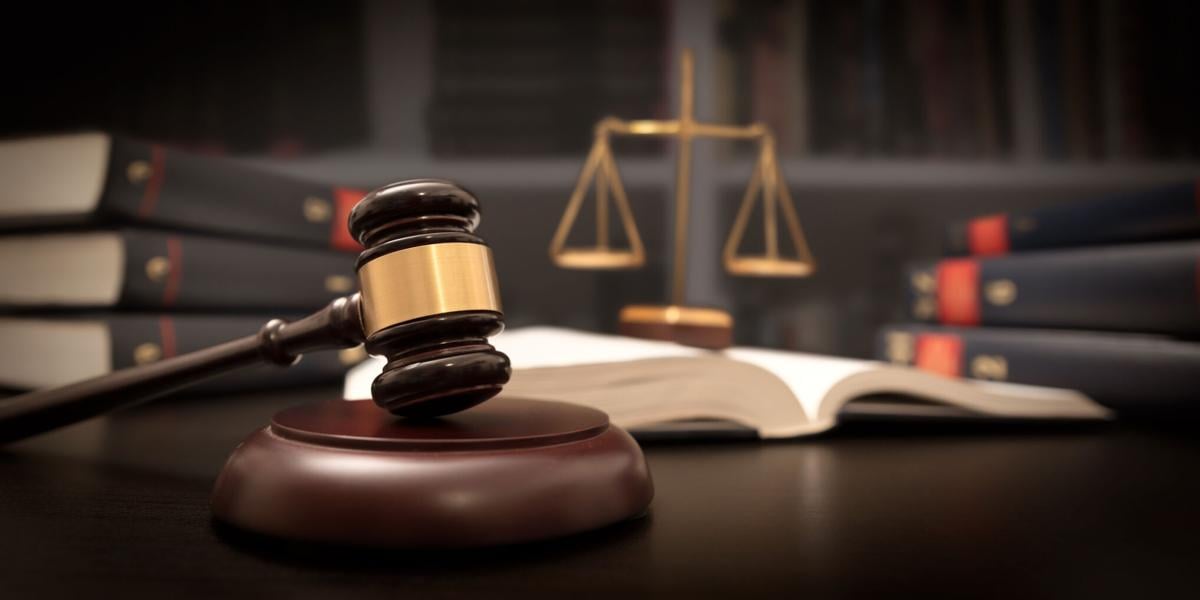PHOENIX — Three Republican candidates allegedly involved in the Jan. 6, 2021, riot at the U.S. Capitol can be on the 2022 state ballot, the Arizona Supreme Court said.
Challengers to the candidates had no legal basis to argue they were unqualified to run based on claims the trio had participated in an “insurrection” against the United States, whether by being involved in its planning or actually participating, the justices said Monday in a brief order.
Chief Justice Robert Brutinel, writing for the court, acknowledged there is a provision in the 14th Amendment of the U.S. Constitution dealing with disqualification. But even assuming that the challengers could prove that U.S. Reps. Paul Gosar and Andy Biggs and state Rep. Mark Finchem were somehow guilty of that — a conclusion the justices did not reach or even consider — Brutinel said that only Congress gets to decide how to enforce that provision. Finchem and Biggs have said nothing they did on Jan. 6 disqualifies them from being candidates.
The justices also said that Free Speech for People, the group that sought to knock the trio off the ballot, filed suit under a law that allows courts to remove candidates who do not meet the qualification to run for a specific office.
But that law, they said, covers whether a candidate meets requirements of Arizona law like being old enough or being a resident. It does not cover, the justices said, whether a separate federal law disqualifies their candidacies.
Monday’s ruling is virtually certain to end the matter as it based on interpretations of state law, meaning there is no possibility of seeking federal court review.
The decision keeps intact the bid by Finchem, currently a Republican state representative from Oro Valley, to be the GOP contender for secretary of state. Biggs and Gosar are incumbent Republican members of the U.S. House of Representatives who are seeking reelection.
At the heart of the issue is the 14th Amendment, passed in the wake of the Civil War. While its main provision deals with equal protection under the law, it also denies both federal and legislative office to anyone who “shall have engaged in insurrection or rebellion” against the United States.
The lawsuit cites what it says is evidence that Biggs and Gosar helped plan the events of that day that led to the attack on the Capitol and that Finchem not only was involved in the planning but went to the Capitol that day, though there is no evidence he ever went inside.
A trial judge threw out the case saying private individuals have no right to enforce that clause. And Maricopa County Superior Court Judge Christopher Coury also said they can’t use state election laws to claim the trio are not qualified.
Monday’s Supreme Court decision affirmed that ruling.
In a prepared statement, a spokesman for challengers said the ruling “betrays the fundamental purpose of the 14th Amendment’s Insurrection Disqualification Clause and gives a pass to political violence as a tool for disrupting and overturning free and fair elections.” It also claims the court was wrong for even refusing to allow them to present “overwhelming evidence” that the trio participated in insurrection.
“And the Arizona Supreme Court certainly did not rule that the Jan. 6 attack was not an insurrection, nor exonerate these defendants from evidence that they engaged in it,” it said.
Jack Wilenchik, who represents Finchem, sniffed at those arguments.
“Their ‘overwhelming evidence’ consisted of the allegation that Finchem tweeted a photo of the crowd,” he said. And Wilenchik said the bid to characterize the Supreme Court decision as “absurd’’ and “indefensible’’ is “certainly in keeping with the level of respect that the extreme left shows for Supreme Court justices these days.”
Alexander Kolodin, Gosar’s attorney, said there was something ironic in the bid to knock the candidates off the ballot.
“The challengers in this case are sponsored by a group with the Orwellian name ‘Free Speech for People,’ “ he said.
“But free speech is the constitutional right they tried and failed to deny to their opponents,” Kolodin said. “It was an honor to defend Congressman Gosar’s right to say whatever the hell he wants.”
While Monday’s ruling ends the bid to keep the candidates off the ballot, it may not be the end of the legal battles.
“The only remaining question is whether the defendants will pursue claims against the plaintiffs for misusing the court system as a stage for political theater rather than a forum for resolving earnest disagreements of law and fact,” said Kory Langhofer who represents Biggs.
It wasn’t just in Arizona that Free Speech for People sought to remove candidates from the ballot. It filed a separate complaint with Georgia Secretary of State Brad Raffensperger charging that Republican U.S. Rep. Marjorie Taylor Greene was similarly disqualified under the 14th Amendment.
Raffensperger sent the case to a state hearing officer who concluded that challengers failed to prove their claim that she helped facilitate the Jan. 6 riot or engaged in insurrection. He then upheld the hearing officer’s finding and left Greene’s name on the ballot.
The organization bills itself as a nonprofit coalition of other groups formed after the U.S. Supreme Court deciding the 2010 Citizens United case which said that corporations and other outside groups have a constitutional right to spend unlimited funds on elections.





